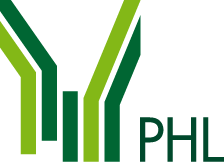- Dozent*in: Helmut Däuble
- Dozent*in: Moritz Jahraus
- Dozent*in: Minke Jakobi
- Dozent*in: Jörg-Ulrich Keßler
- Dozent*in: Christoph Knoblauch
- Dozent*in: Ulrich Theobald
- Dozent*in: Florian Weber-Stein
Wenn Sie weiter auf dieser Webseite arbeiten möchten, bestätigen Sie bitte unsere Nutzungsrichtlinie:
x
